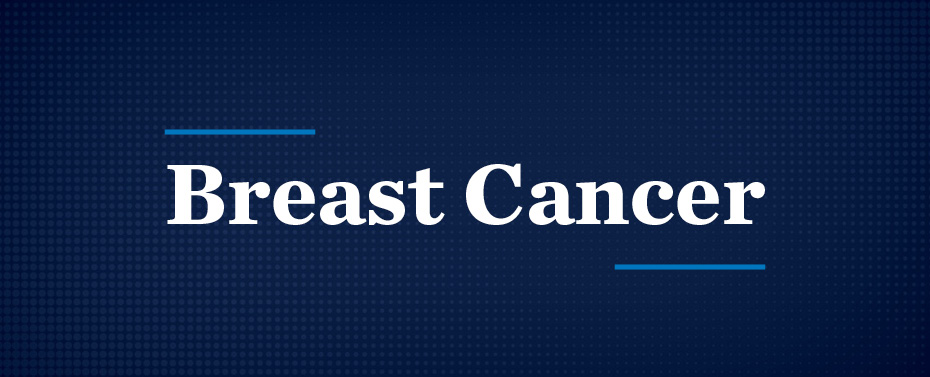Breast Cancer

Breast cancer occurs when cells in the breast grow out of control. Research indicates that different genetic factors, in addition to lifestyle choices, influence the development of breast cancer.
Breast cancer affects both women and men, although the condition occurs more frequently in women. In many cases, breast cancer causes a lump in the breast. However, not all breast cancers cause lumps.
Since you know your body better than anyone, we encourage monthly breast self-examinations at home. Additionally, regular screening tests, such as mammograms, may help detect breast cancer before any lumps or other symptoms develop. Specialists at the Leslie Simon Breast Care and Cytodiagnosis Center perform a variety of diagnostic tests, such as fine needle aspiration biopsies to assess breast masses. If the biopsy is positive, you will be referred to one of our breast specialists.
If you need treatment for breast cancer, The Lefcourt Family Cancer Treatment and Wellness Center provides multiple treatment options. We personalize your treatment plan based on the unique genetic features of the breast cancer, the stage of the cancer, and the severity of your symptoms. Your tailored treatment may include:
- Chemotherapy
- Hormone therapy
- Immunotherapy
- Radiation therapy
- Surgery
- Targeted therapy
Throughout your treatment, you have access to our patient support services. You’ll work with a patient navigator to get your questions answered, set up appointments, and make sure your needs are being met.
Why Choose Englewood for Breast Cancer Care?
Englewood Health cares for hundreds of patients with breast cancer each year and many more for screening. Each member of your health care team partners with you during your diagnosis and treatment, offering:
- Comprehensive care from a team of experts who meet weekly to discuss and plan treatment for all breast cancer cases
- Genetic counseling and screening for people at higher risk of developing breast cancer
- Innovative screening and diagnostic tests for breast cancer, such as 3D magnetic resonance imaging (MRI) scans and ductography
- A full range of treatment options, including exciting new therapies like immunotherapy, targeted therapy, and clinical trials
- Surgical expertise, including plastic and reconstructive surgery, to help preserve the appearance of the breasts
- Patient support services, including access to a personal patient navigator
Breast Cancer Risk Factors
Research indicates 1 in 8 women in the United States will develop breast cancer sometime within their lives. But breast cancer isn’t linked to one specific cause. Instead, a combination of factors increases your risk for developing this condition.
Some breast cancer risk factors are unavoidable, such as:
- Age, since most breast cancers occur after age 50
- Family or personal history of breast cancer
- Genetic mutations, such as BRCA1 and BRCA2
- Having dense breasts
- Previous radiation therapy treatment to the chest
Other risk factors relate more to lifestyle choices, including:
- Excessive alcohol consumption
- Hormone replacement therapy
- Lack of exercise
- Overweight or obesity
- Reproductive history, including having your first child after age 30
Breast Cancer Symptoms
Very often, a new lump is the first sign of breast cancer. This lump may be painless, or it may cause discomfort when touched. Other possible symptoms of breast cancer include:
- Breast or nipple pain
- Nipple discharge
- Redness or thickening of breast or nipple skin
- Skin dimpling, scaling, or irritation
- Swelling of the breast or surrounding lymph nodes
Englewood Health’s Breast Cancer Treatment Team
Managing breast cancer is a team effort. Our breast cancer specialists meet weekly to discuss test results, determine treatment options, and monitor our patients’ recovery. Your treatment team may include:
- Breast cancer specialists with expertise in treating all forms of breast cancer
- Medical oncologists, who help plan portions of your treatment
- Radiation oncologists, who deliver precise doses of radiation to shrink breast cancers
- Surgeons, including breast surgeons and reconstructive surgeons, who skillfully remove breast cancers and preserve the health and appearance of surrounding tissues
